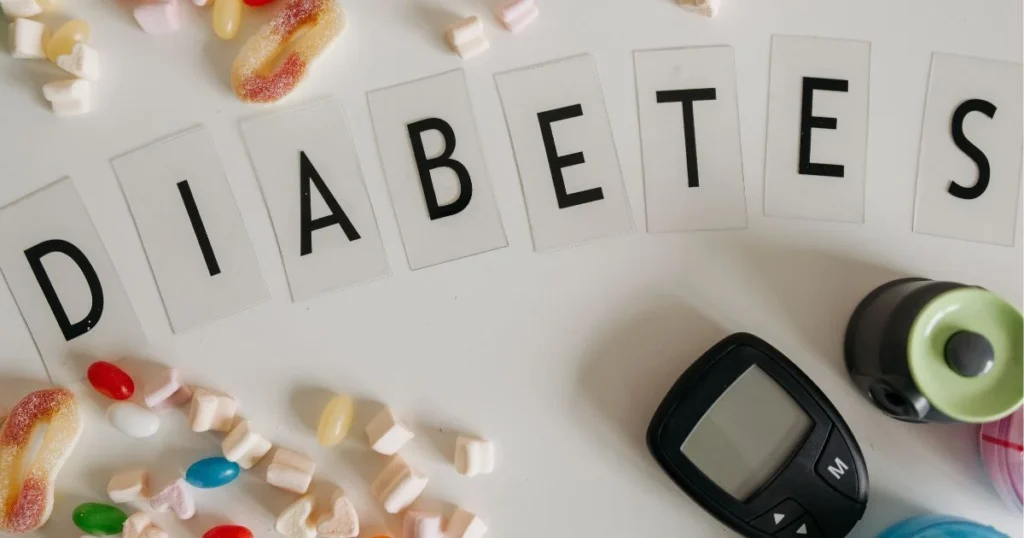Diabetes is a chronic condition that affects millions of people worldwide. It occurs when the body is unable to produce or use insulin effectively, leading to high levels of glucose in the blood. Diabetes can cause serious health complications if left untreated, including cardiovascular disease, kidney damage, nerve damage, and blindness. While there are several treatment options available to manage diabetes, many people wonder if there is a cure for this condition. In this article, we will explore the latest research on blood sugar and whether a cure is possible.

Understanding Diabetes
Diabetes is a condition in which the body is unable to regulate blood sugar levels effectively. Normally, the pancreas produces insulin, a hormone that helps the body to use glucose for energy. In people with diabetes, the pancreas either does not produce enough insulin or the body is unable to use it effectively, leading to high levels of glucose in the blood.
Types of Diabetes
There are three main types of Diabetic condition
• Type 1 diabetes: an autoimmune disease in which the body’s immune system attacks and destroys the cells in the pancreas that produce insulin.
• Type 2 diabetes: a metabolic disorder in which the body is unable to use insulin effectively, leading to high levels of glucose in the blood.
• Gestational diabetes: a type of diabetes that occurs during pregnancy and usually goes away after delivery.
Read more..Natural Remedies for Sinus Infection:10 Natural Remedies
Causes
Diabetic condition is a medical condition characterized by high levels of sugar (glucose) in the blood. The causes of diabetic can be varied and complex, and may involve genetic, lifestyle, and environmental factors. Here are some of the most common causes of diabetes:
- Genetics: Diabetes can be hereditary and passed down through family members. People with a family history of Diabetic are more likely to develop the condition.
- Obesity: Being overweight or obese can increase the risk of developing type 2 Diabetic . Excess body fat can make it more difficult for the body to use insulin effectively.
- Sedentary lifestyle: Lack of physical activity can increase the risk of developing Diabetic . Exercise helps the body use insulin more efficiently and can lower blood sugar levels.
- Unhealthy diet: Eating a diet high in processed foods, refined carbohydrates, and sugary drinks can contribute to the development of diabetic. A diet that is high in fruits, vegetables, whole grains, and lean proteins can help prevent Diabetic .
- Insulin resistance: Insulin is a hormone that helps the body use glucose for energy. Insulin resistance occurs when the body becomes resistant to the effects of insulin, leading to high blood sugar levels.
- Hormonal disorders: Certain hormonal disorders, such as Cushing’s syndrome and acromegaly, can increase the risk of diabetic.
- Age: The risk of developing diabetic increases as people get older.
- Gestational diabetes: Some women develop diabetic during pregnancy, known as gestational diabetes. This can increase the risk of developing type 2 diabetic later in life.
- Certain medications: Some medications, such as corticosteroids and antipsychotics, can increase the risk of diabetes.
- Environmental factors: Exposure to certain toxins and pollutants may increase the risk of diabetic.
Symptoms
Symptoms of diabetes can vary depending on the type of diabetes, but some common symptoms include:
- Frequent urination: People with diabetes often have to urinate frequently, as the body tries to remove excess glucose from the blood.
- Increased thirst: Frequent urination can lead to dehydration, which can cause increased thirst.
- Fatigue: High blood sugar levels can make people with diabetes feel tired and sluggish.
- Blurred vision: High blood sugar levels can cause changes in the eye’s lens, leading to blurred vision.
- Slow healing: People with diabetes may experience slower healing of cuts and wounds.
- Numbness and tingling: Over time, high blood sugar levels can damage nerves, leading to numbness and tingling in the hands and feet.
- Dry skin: Diabetes can cause dry skin and itchiness.
- Weight loss: People with type 1 diabetic may experience sudden weight loss, as the body breaks down muscle and fat for energy.
- Increased hunger: People with diabetic may feel hungry more often, as the body struggles to use glucose for energy.
- Irritability: High blood sugar levels can cause mood swings and irritability.
Diagnosis
Diabetes can be diagnosed through several tests, including a fasting blood sugar test, an oral glucose tolerance test, and a hemoglobin A1C test. These tests measure the levels of glucose in the blood and can help determine whether someone has diabetic.
Treatment
 There are several treatment options available to manage diabetes, including:
There are several treatment options available to manage diabetes, including:
• Insulin therapy
• Oral medications
• Lifestyle changes, such as diet and exercise
. Lifestyle Changes to Manage Diabetes
Making lifestyle changes can help manage and reduce the risk of complications. This includes:
• Eating a healthy diet
• Exercising regularly
• Monitoring blood sugar levels
• Quitting smoking
• Managing stress
Current Research on Diabetes
Researchers are constantly working to better understand sugar diabetic and develop new treatments for the condition. Recent research has focused on developing artificial pancreas systems, which combine a continuous glucose monitor and insulin pump to automatically regulate blood sugar levels.
The Search for a Cure
While there are several treatment options available for diabetic, there is currently no cure for the condition. However, researchers are actively searching for a cure and exploring several potential avenues for treatment, including:
• Islet cell transplantation
• Gene therapy
• Immunotherapy
Challenges in Finding a Cure
Finding a cure for diabetes is a complex process that faces several challenges, including:
• Difficulty in identifying the specific genes and mechanisms that cause diabetic is one of the major challenges in finding a cure. There are several different types of diabetic condition, each with its own unique genetic and environmental factors. Additionally, diabetes is a complex condition that involves multiple organ systems and biological pathways.
• Another challenge is the risk of rejection in transplant procedures. While islet cell transplantation has shown promise in treating type 1 diabetic, there is a risk that the recipient’s immune system will reject the transplanted cells. This requires the use of immunosuppressive drugs, which can have significant side effects and complications.
• The high cost of developing and testing new treatments is also a major challenge. The process of bringing a new drug to market can take several years and cost billions of dollars. Additionally, there is no guarantee that a new treatment will be effective or safe.
Despite these challenges, researchers are actively working to find a cure for diabetic. Advances in technology and genetic research are providing new insights into the mechanisms that underlie the condition, and clinical trials are underway for several promising new treatments.
Conclusion
Sugar diabetic is a chronic condition that affects millions of people worldwide. While there are several treatment options available to manage diabetes, there is currently no cure for the condition. However, researchers are actively searching for a cure and exploring several potential avenues for treatment. Making lifestyle changes, such as eating a healthy diet and exercising regularly, can help manage High blood sugar and reduce the risk of complications.
FAQs
Can diabetes be cured completely?
Currently, there is no known cure for sugar diabetic. However, there are several treatment options available to manage the condition and reduce the risk of complications.
Is it possible to reverse diabetes with lifestyle changes?
In some cases, making lifestyle changes such as eating a healthy diet and exercising regularly can help manage sugar diabetic and even lead to a reduction in symptoms. However, this depends on the individual and the severity of their condition.
What is the latest research on finding a cure for diabetes?
Researchers are actively exploring several potential avenues for a diabetic cure, including islet cell transplantation, gene therapy, and immunotherapy.
What are the long-term complications of diabetes?
Diabetic can cause several serious long-term complications, including cardiovascular disease, kidney damage, nerve damage, and blindness.
How can I reduce my risk of developing diabetes?
Making lifestyle changes such as eating a healthy diet, exercising regularly, and maintaining a healthy weight can help reduce your risk of developing diabetic.




